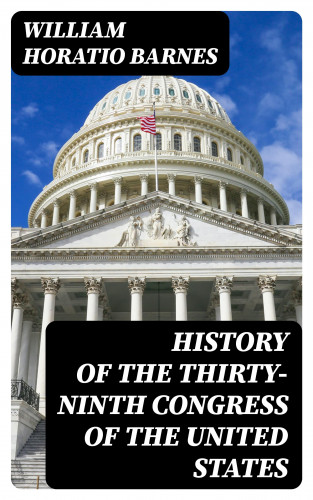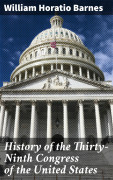William Horatio Barnes: History of the Thirty-Ninth Congress of the United States

| Produkttyp: | eBook-Download |
|---|---|
| Verlag: | DigiCat |
| Erschienen: | |
| Sprache: | Englisch |
| Seiten: | 703 (Druckfassung) |
| Format: | EPUB
Info▼
|
| Download: | 973 kB |
William Horatio Barnes's 'History of the Thirty-Ninth Congress of the United States' is a detailed and comprehensive account of the legislative activities and political dynamics of one of the most pivotal periods in American history. Barnes's scholarly approach to documenting the events of the Congress highlights his meticulous research and in-depth analysis, providing readers with a nuanced understanding of the political landscape of the time. The book is written in a straightforward yet engaging style that appeals to both academic scholars and general history enthusiasts. Barnes delves into key issues such as Reconstruction, civil rights, and the impeachment of President Andrew Johnson, offering valuable insights into the challenges faced by the United States during this period of transition. William Horatio Barnes, a respected historian and political commentator, brings his expertise to bear in 'History of the Thirty-Ninth Congress of the United States.' Barnes's background in political science and his passion for American history inform his careful examination of the events and personalities that shaped the Congress. His dedication to preserving the historical record and presenting a balanced perspective on this crucial era in American history shines through in his writing. I highly recommend 'History of the Thirty-Ninth Congress of the United States' to anyone interested in delving deep into the political history of the United States. Barnes's insightful analysis and well-researched narrative make this book an invaluable resource for understanding the complexities of the Reconstruction era and the challenges faced by the nation as it sought to rebuild and redefine itself in the aftermath of the Civil War.











